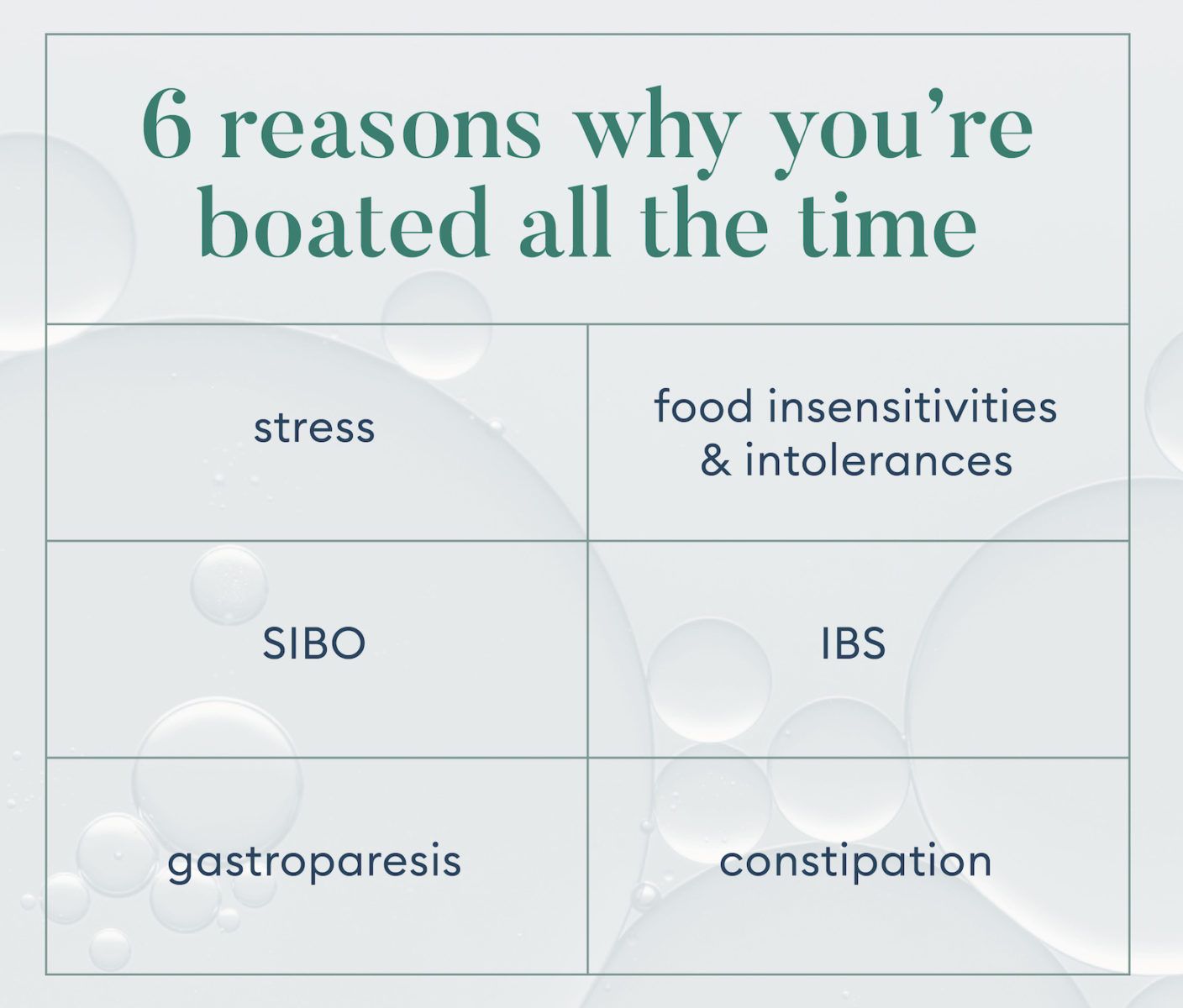Most of us feel bloated from time to time. But if you've been asking yourself, "why am I always bloated?", there may be a bigger issue at play. Here are several reasons you may feel bloated 24/7.
How much bloating is normal?
Bloating is one of the most commonly reported gastrointestinal (GI) complaints, according to research published in the journal Gastroenterology & Hepatology. But while bloating is common, only a certain amount is considered normal, or healthy.
“If you eat a huge meal and you’re a little bit bloated and gassy, that’s normal,” says Cori Cohen, RD, a former dietitian and health coach at Parsley Health. You may also feel unusually full and tight if you scarf your food down quickly, as this may bring excess air into your stomach. “But if you’re experiencing it with almost anything you eat, and it’s hard to identify food triggers, that is a red flag,” Cohen says. “If you have been experiencing bloat and discomfort for a prolonged period (as in over a year) and/or you’ve had lifelong digestive issues, that’s when it’s time to dig deeper for root causes,” she adds.
Bloating often merits medical attention. When accompanied by certain symptoms, bloating deserves urgent medical attention. These symptoms include:
- Sudden weight loss
- Blood in stool
- Yellowing of the skin



